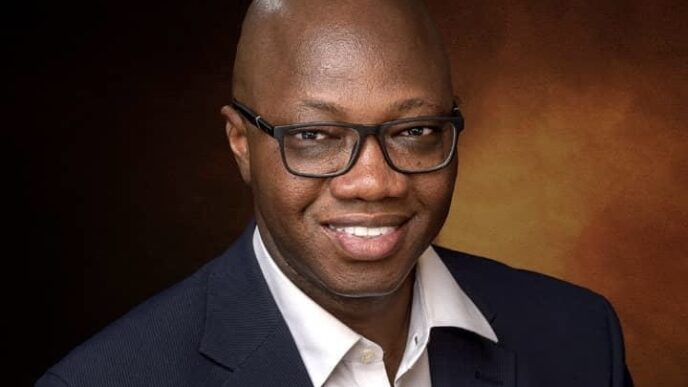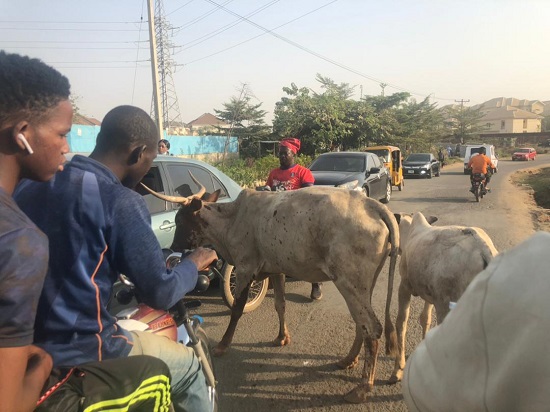BY ABOSEDE GEORGE OGAN
Across Nigeria, a growing number of women are quietly but powerfully reshaping health outcomes, leading initiatives that reduce maternal deaths, expand access to care, and respond decisively to crises.
Their leadership is rooted in lived experience; they understand the realities women and communities face, and they bring empathy, urgency, and innovation to solving them.
These stories remind us of what’s possible when women lead. And yet, for every woman who breaks through, countless others remain locked out by structural barriers. It has been nearly two decades since Nigeria’s first – and only – female governor was in office. Why haven’t more women followed? What would our health systems look like if more women had the power to design, fund, and lead them?
Advertisement
With the 2030 Sustainable Development Goals (SDGs) deadline fast approaching, health leadership has never been more critical, who leads and how they lead matter even more. Nigeria, Africa’s most populous nation, cannot afford to overlook the power of strategic leadership grounded in lived experience to transform its health ecosystem.
Today, Nigeria’s health system remains fragile.
According to the World Bank, Nigeria accounts for 12% of global maternal deaths and only 43% of births are attended by skilled personnel. Life expectancy remains one of the lowest globally, and primary healthcare, the foundation of Universal Health Coverage, continues to suffer from chronic underinvestment, fragmented governance, and inequity.
Advertisement
Amid these challenges, there is a striking gap we must address: the underrepresentation of women in health leadership. Women make up more than 70% of the health workforce in Nigeria, but hold only a fraction of decision-making roles. According to WHO Africa’s data, women are rarely found at the helm of federal or state ministries, academic institutions, or key health agencies. This lack of representation means the voices of frontline workers, and those most affected by health policies are not shaping the policies themselves.
Strategic leadership, especially by women who understand the health needs of their communities intimately, is not just about gender equality; it’s about smarter, more responsive systems. It’s about achieving health equity. It’s about saving lives. Leadership reflecting Nigeria’s diversity is essential to meeting the targets of SDG 3, ensuring healthy lives and promoting well-being for all and achieving SDG 5 gender equality. When women lead, we see stronger advocacy for maternal health, reproductive justice, community health systems, and equitable service delivery. The evidence speaks for itself from Ondo State to global examples like Rwanda.
The status quo is no longer viable, especially if Nigeria’s health system is to improve and truly serve its people. A WILAN White Paper highlights the substantial barriers Nigerian women face in advancing to leadership positions. These challenges include gender bias, restrictive cultural and religious norms, work-life balance pressures, a lack of visible role models, the perception of leadership as inherently male, and limited opportunities for collaboration and influence. Together, these barriers constrain women’s ability to shape and strengthen health systems.
In response, WomenLift Health, in partnership with the Women in Leadership Advancement Network (WILAN), is implementing a leadership development programme for mid- to senior-career women in Nigeria’s health sector. The programme is equipping women with the skills, networks, and confidence to lead and make a meaningful impact.
Advertisement
Beyond this, collective action is essential.
Governments must enact policies that establish clear leadership pathways and implement gender quotas to elevate women across all levels of the health sector. This must be matched by sustainable investment in gender-responsive leadership development, the amplification of women leaders’ voices and impact, and a concerted effort to reshape public narratives and challenge outdated norms.
Trusting, mentoring, and supporting women as they step into roles that influence the future of health in Nigeria is not just a matter of equity; it is a strategic imperative for building a stronger, more inclusive health system.
Ogan, founder and executive director, WILAN, Nigeria, writes from Lagos.
Advertisement
Views expressed by contributors are strictly personal and not of TheCable.










